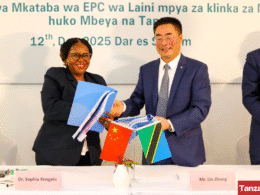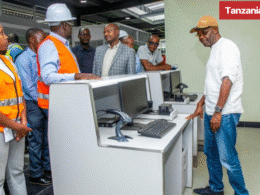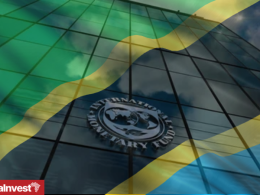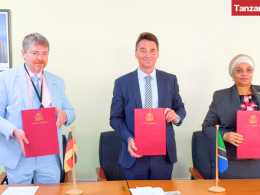The World Bank (WB) recently approved USD225m loan to improve access to water supply and sanitation services in Dar es Salaam.
The funding will also support the strengthening of capacities for integrated water resources planning and management in Tanzania.
The loan will benefit up to 1.9m Tanzanian citizens, including 700,000 residents of the country’s largest city, Dar es Salaam.
The WB note that in 2015/2016, the city’s non-revenue water (NRW – water that is produced but is somehow lost in the system) rate reached a high of 53%, against a water service coverage of about 55%.
“In Dar es Salaam, many citizens, including women and young girls, still spend considerable time collecting water, which takes time away from education and the productive activities so necessary for strengthening their livelihoods,” sayd Bella Bird, WB Country Director for Tanzania, Burundi, Malawi and Somalia.
“This project aims to lessen their burden while contributing to Dar es Salaam’s increased competitiveness and productivity as a critical and vibrant commercial hub of the country,” she added.
This project also addresses issues such as inadequate coordination among institutions, weak data management and reporting mechanisms, and operational inefficiency.
Tanzania Water Supply
In September 2015, the Ministry of Water and Irrigation (MOWI) reported that 7.9m people had gained access to safe water through 584,473 household connections and 5,836 kiosks and public taps; and 527,000 people were connected to the sewerage system.
MOWI also reported that 2.8m Dar es Salaam residents also achieved access to safe water supply through 152,000 domestic connections and 203 kiosks/public standpipes; while about 326,130 people were connected to the sewerage network.
The WB has supported various initiatives in Tanzania’s water sector including the Rural Water Supply and Sanitation Project (2002–2008); and the Dar es Salaam Water Supply and Sanitation Project (2003–2010).
The two projects provided the foundation for the development of the Government of Tanzania’s Water Sector Development Program (WSDP) in 2006, to which the World Bank provided financing under Water Sector Support Project (2007–2015).
The WB indicates that good progress was achieved through the WSDP-1 with the development of vital legal and institutional reforms for effective Integrated Water Resource Management.
These include the completion of integrated water resources management and development plans for six basins (Internal Drainage, Lake Nyasa, Ruvuma and Southern Coast Rivers, Lake Tanganyika, Rufiji River, and Lake Rukwa), with plans currently underway for the remaining three: Pangani, Lake Victoria and the Wami-Ruvu basin in which Dar es Salaam is located.











